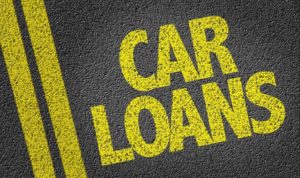
Many potential bankruptcy filers who are considering taking that big step by hiring an attorney will come in to their first appointment with one big question. This one big question usually has something to do with the major catalyst to their financial struggle and another method of taking care of it outside of bankruptcy. One such question that comes up regularly is the ability to transfer liability on an existing loan.
For Example:
Suzy was in love with Drake. He needed a car so he could drive to his job and make more money so they could move in together. He really wanted to make more money so they could be together, but couldn’t get approved for an auto loan. To solve the problem, he asked Suzy to cosign the auto loan so they could be together. Fast-forward one year down the road, Suzy and Drake do not live together. In fact, they aren’t together at all. Instead of being a cosigner on her boyfriend’s auto loan, Suzy is now the cosigner on her ex-boyfriend’s auto loan. In fact, she’s the co-signer on her ex-boyfriend’s past due auto loan. Drake hasn’t been making payments his car payments. Suzy would like to get the car refinanced so that she can transfer liability out of her name and into Drake’s alone, but no one will refinance. Is there a way to transfer liability of an existing auto loan? Or is bankruptcy the only option?
This is the type of situation that no one expects to occur, but that happens far too often when a cosigner is necessary to obtain a loan. The above situation can definitely lead someone to file for bankruptcy even if it’s their only debt, which doesn’t seem at all fair. But the fact of the matter is that co-signing is one of the most common reasons people file bankruptcy. As the cosigner, Suzy signed the contract, agreeing to be financially liable for the loan amount used to purchase the car. The lender will not take the cosigner’s name off the loan simply because circumstances have changed and Suzy is no longer dating (or living with or married to or engaged to or “friends” with, etc.) Drake. The lender didn’t get to choose who you went out with, it didn’t get to choose who you broke up with, but it does get to choose who to seek payment from because the paperwork points them right at those who are financially liable for the debt. They even have signatures agreeing to pay the balance. There is no incentive for any lender to release you from liability if you cosigned on a loan unless the loan is paid in full.
In this type of situation, the cosigner has a few options:
- Make the payments yourself. Hopefully, you can use the car while you are paying towards the balance on the car and you can afford to make the payment. This will keep the loan from hurting your credit and will eventually result in you owning a car.
- Find someone else to take over the payments and the car. Talk to friends and family…is anyone in the market for a new car? You would still be 100% liable for the balance on the loan, but having the payments covered could help out. It might even be worth it to have a friend make a percentage of the payments with you covering the remainder each month. If you attempt to solve the problem in this way, make sure drivers have proper insurance coverage.
- Return the vehicle to the lender. This is still considered “repossession” according to the credit bureaus. The lender will sell the vehicle and send you a bill for the remaining balance after the sale. This is called a deficiency balance and you, as the liable party, would be responsible for paying it.
- Ignore the problem entirely. Ignoring the problem entirely will eventually result in the lender repossessing the vehicle and seeking payment of the deficiency balance from you.
If you have other questions about dealing with bankruptcy, avoiding bankruptcy, or alternatives to bankruptcy, please contact the experienced southern California bankruptcy attorneys at Westgate Law.
